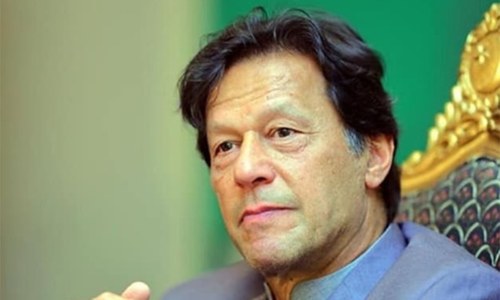The US State Department on Tuesday said that nuclear proliferation is a top national security concern for Washington, days after Secretary of State Mike Pompeo allegedly said that Pakistan's nuclear programme is among the five biggest threats to America's national security.
Asked to comment on the secretary’s statement at a Tuesday afternoon news briefing, the State Department’s Deputy Spokesperson Robert Palladino said: "Nuclear proliferation is one of the very first national security concerns articulated in our National Security Strategy. It’s at the very top of the list."
Defending Secretary Pompeo’s position on this issue, Palladino said the issue was so huge that the US has to stay engaged with it all the time. "So, that absolutely remains something that this administration thinks about often, because the level of the impact, of what could happen is simply so great. So that remains at the very top of our national security considerations," he explained.
He noted that Pompeo had also emphasised the need for Pakistan to "deliver outcomes and to build confidence and trust between our two nations."
The US, Palladino said, wants to see a prosperous Pakistan that contributes positively towards regional stability and security.
Responding to another question, he said: "Pakistan could play an important role in bringing about a negotiated settlement in Afghanistan, this is something that we’re thankful for."
'US wants closer ties with Pakistan'
At a Pakistan Day reception in Washington on Monday night, another senior US official, Under Secretary of State for Political Affairs David Hale said that the US wants a peaceful, stable and prosperous Pakistan but it also seeks the same for Afghanistan and others in the region.
Ambassador Hale, who served in Pakistan for three years before taking over his new responsibilities in Washington last year, said, "America wants to forge even closer ties with Pakistan as it becomes ever more stable and democratic."
He said: "We both value a relationship characterised by mutual respect. Americans and Pakistanis alike are seeking a peaceful, stable and prosperous Pakistan just as we seek those same attributes for Afghanistan and for the region."
The point, he said, is also underlined in the Trump administration’s strategy for South Asia, which seeks an orderly withdrawal of US and other foreign forces from Afghanistan. To reach there, the United States is negotiating a four-point draft agreement with the Taliban, as listed by the chief US negotiator Zalmay Khalilzad: "Counter-terrorism assurances, troop withdrawal, intra-Afghan dialogue, and a comprehensive ceasefire."
By linking peace and stability in Pakistan with Afghanistan, Ambassador Hale also stressed this point. "We are committed to those goals," he said.
Hale also spoke about "the vibrancy and potential of the Pakistani nation", which he witnessed during his 3-year stay in the country. "A potential, which is still today not fully tapped," he said. "Pakistan can become a major player in the world economy if it takes advantage of its considerable resources and entrepreneurial spirit."
Ambassador Hale noted that US-Pakistan bilateral trade exceeded a record $6.6 billion in 2018 but "can do much, much more."
'PM Khan skilfully de-escalated conflict with India'
Speaking at the same reception at the Pakistan Embassy, former US ambassador to Pakistan Richard Olson had acknowledged that Pakistan is playing a positive role in promoting US-Taliban talks, which also helps improve their bilateral relations.
Linking the recent improvement in ties to Pakistan’s support to the peace talks, former US ambassador Olson noted that Khalilzad also has praised Pakistan's role in helping to bring peace in Afghanistan. "That’s fundamental to our relationship. So, I think, that’s a good thing," he added.
Olson noted that Prime Minister Imran Khan had taken "some positive steps" with regard to peace in Afghanistan and was also "very skilful in de-escalating the recent conflict with India."
But, from the US perspective, "There probably will continue to be questions about the degree and extent of crackdown on the militants, which we know is important for Pakistan’s own future," he said.
The US-Taliban talks, Olson said, were still at a preliminary stage but "what’s important now is for there to be an Afghan component to the talks in which Afghans can talk to the Taliban."
He also urged Pakistan to "use its influence with the Taliban to bring about such an intra-Afghan dialogue, (as) that would be a very positive thing."
'Both sides seem to realise importance of relationship'
Pakistan’s US envoy Ambassador Asad Majeed Khan had noted at the event that US-Pakistan relations recently passed through "a stage of coldness" but the US did play "a good and positive role, in de-escalating" the India and Pakistan confrontation.
Khan said that both sides realised the importance of this bilateral relationship and also shared a commitment to overcome the difficulties they sometimes encounter.
He also referred to President Donald Trump’s statement last week that relations between the US and Pakistan were "very good now" and he may soon initiate talks with the new Pakistani leadership.
"I believe both sides fully realise the importance of this relationship. So, if there are differences in certain areas, there’s also a commitment to overcome those differences," Ambassador Majeed said.














































